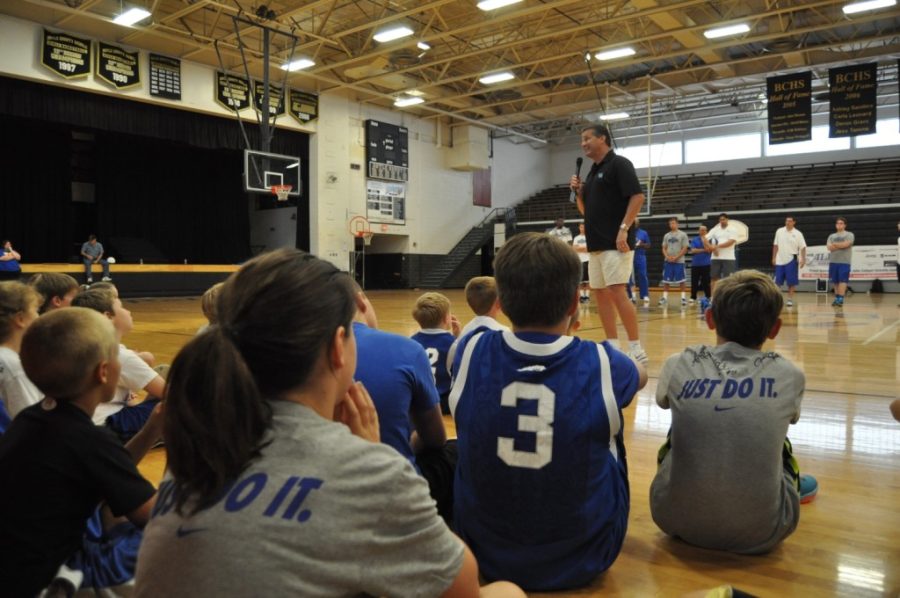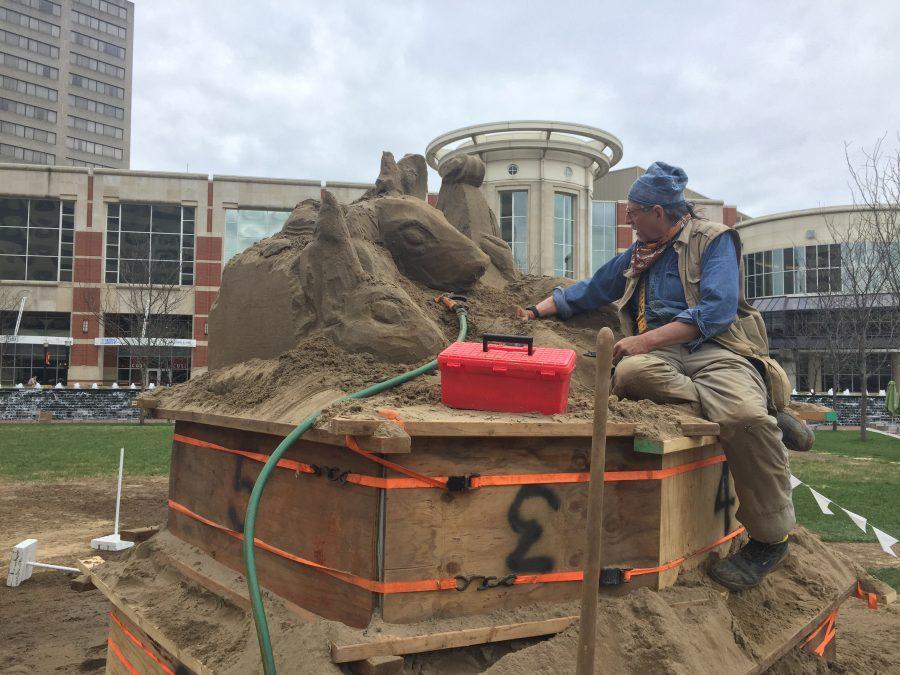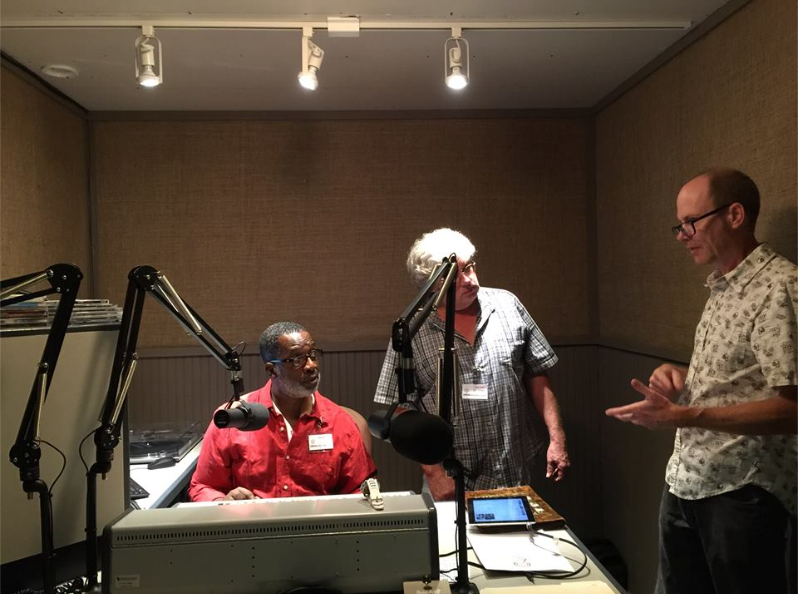Horse racing safety has long been a topic of conversation in Kentucky.
Horse racing is important to the economy and culture of Kentucky. Still, conversations surrounding horse racing deaths and injuries became an increasingly popular topic after 12 horses died in the 2023 season at Churchill Downs.
“It’s gotten the public’s attention, and that’s had an effect on attendance, and it’s cast racing, certainly in a negative light, and the racing industry contributes billions of dollars to the economy. So, it’s a really important industry to support,” Dr. Allen Page, a Gluck Equine Research Center veterinarian, said.
The Horse Integrity and Safety Authority (HISA) was signed into law in 2021 to help regulate different aspects of horse racing and keep both horses and jockeys safe.
Some racehorse owners, like Mike Repole, an American entrepreneur, have openly opposed HISA and are recommending alternative methods to regulate horse racing.

An open records request was filed with the Kentucky Horse Racing Commission (KHRC) to pull records of horse racing deaths over the past 20 years in Kentucky.
The purpose was to analyze the increase or decrease in horse racing deaths and find if there were any changes in the trends of horse racing deaths since HISA, a federal agency, was enacted.
On the KHRC website, all that was available were the past five years of horse racing deaths.
The response to the open records request stated that KHRC could not provide the past 20 years of records because “an agency is not required to under the Act to provide nonexistent records.”
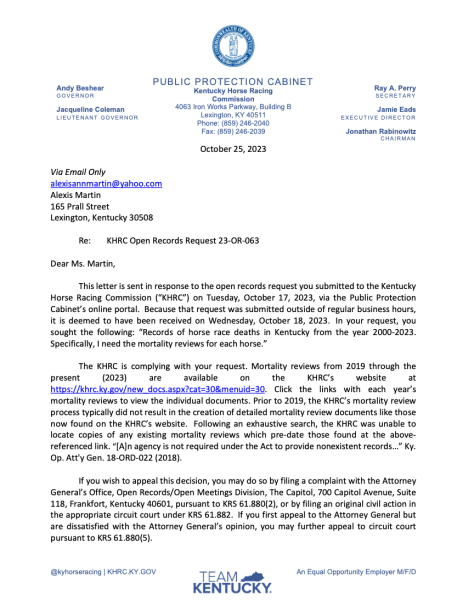
An organization with mortality records in Kentucky horse racing over the past 20 years.
Using the information on the KHRC website, this graph was created depicting the past five years of horse racing deaths in Kentucky.
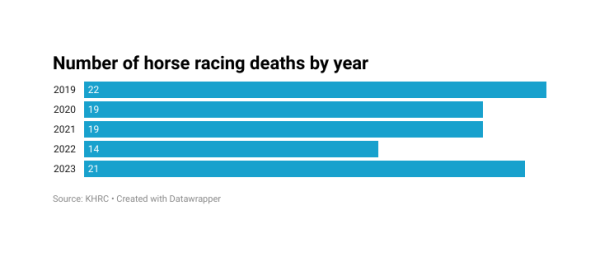
With only five years of data, no apparent trend could be found.
However, Dr. James MacLeod, Director of Equine Programs at UK, said that horse racing deaths have decreased in recent years.
“It’s actually dropped over 30%. So, I think in 2009, it was just about two of these injuries per thousand starts, and this past year, it was down to 1.25, so it has dropped over that period of time on a whole population level from the data collected in North America,” Dr. MacLeod said.
While the number of racehorse deaths has dropped, cluster deaths like the 12 deaths at Churchill Downs still rock the community and industry.
“There’s been a renewed focus on what can we do to identify horses at risk for injury,” Dr. Page said.
Dr. Page is researching how mRNA can help predict injuries in racehorses.
He says mRNA is a blueprint for producing proteins, so instead of looking at the proteins to find biomarkers that could indicate injury, they are looking at the mRNA.
“We have measured messenger mRNA in catastrophically injured horses, so horses with fractures that that they’ve experienced during racing, and then we compare that to non-injured horses, ultimately, the goal being that we can identify horses at risk for injury before they can occur,” Dr. Page said.
The blood test to analyze the mRNA takes a few days to process, so the blood test could be performed the week of a race.
“You could collect the sample, send it off for analysis, and have the results back before they raced or before they had that high speed training so that if there was, you know, suggestion that the horse was at risk for an injury, you still had time to react and have the horse examined,” Dr. Page said.
Dr Page predicts the blood test would cost around $60 to $80.
Dr. Page said that because mRNA is a protein-coding gene, it is not something that could devalue the breeding potential of the horse if a blood test found it at risk for a catastrophic injury.
“This isn’t something that’s heritable, so it’s not passed on genetically. It’s something that changes based on the circumstances.,” Dr. Page said
Dr. MacLeod says Dr. Page’s research could be one step in a 3-step process that can be used to predict catastrophic injuries.
He said instruments used to assess horses’ strides, more sophisticated medical imaging, and molecular markers like Dr. Page’s study must all be combined to help predict devastating injuries.
Both doctors are hopeful for the future of horse racing as research and technology can continue to make the sport safer.
‘I’m really optimistic that we can continue to make progress on this real important issue,” Dr. MacLeod said.






